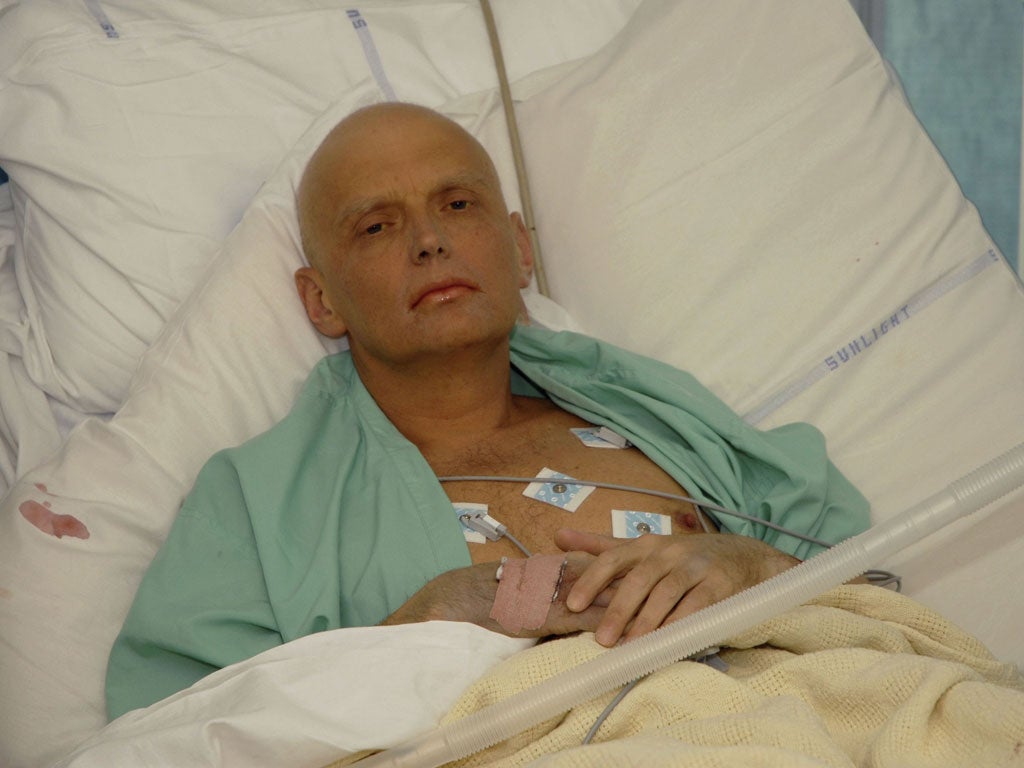Spies could be compelled to give evidence to Litvinenko inquest

British and Russian spies could be compelled to give evidence at the inquest into the death of former KGB agent Alexander Litvinenko, who died from radioactive poisoning after meeting former contacts for tea at a London hotel in 2006.
The inquest into the controversial death of Mr Litvinenko, 43, is due to be held next year. At a preparatory hearing today, lawyers for his widow, Marina, called for both MI6 and the FSB – the KGB’s successor – to be invited to participate.
The hearing, before High Court judge Sir Robert Owen, was told that both the British and Russian governments appeared reluctant to cooperate fully. Hugh Davies, counsel for the coroner’s legal team, said Britain had been asked to disclose documents in January but they were not made available until the end of August.
Neil Garnham QC, representing the Home Secretary, Theresa May, said the Home Office would act as an “umbrella organisation” to coordinate information for other government departments including the Atomic Weapons Establishment, Cabinet Office, Foreign Office, MI6, MI5, Health Protection Agency, Ministry of Defence and Serious Organised Crime Agency.
The hearing was told that the Russian government had not taken up an invitation to participate. Maya Sikand, representing Mrs Litvinenko, said the invitation should be extended to the FSB, adding: “What also should be considered is whether MI6 should be invited to apply to be so designated.”
The case was adjourned until next month, when a hearing will decide the scope of the inquest. The alleged involvement of Andrei Lugovoi and Dmitry Kovtun, former KGB contacts who met Mr Litvinenko on the day in question, is expected to be examined. Both have denied involvement.
Mr Davies added that the coroner would have to decide whether the inquest also had a duty to investigate the possible culpability of the Russian state “and the possible culpability of the British state in the death of Alexander Litvinenko – either in itself carrying out, or by its agents, the poisoning. Or by failing to take reasonable steps to protect Mr Litvinenko from a real and immediate risk to his life.”
The inquest may also look into a “number of competing and increasingly controversial theories” as to who else may have been involved, including Russian oligarch Boris Berezovsky, the Spanish mafia, Chechen groups, Italian academic Mario Scaramella and Alexander Talik, a close associate of Mr Lugovoi.
Mrs Litvinenko said she simply wanted the truth. “I believe it is important, not just for me and my family and friends, but it is very important for the two countries, for Russia and England. This relationship is quite difficult and I believe people need to know what happened,” she said.
Subscribe to Independent Premium to bookmark this article
Want to bookmark your favourite articles and stories to read or reference later? Start your Independent Premium subscription today.
